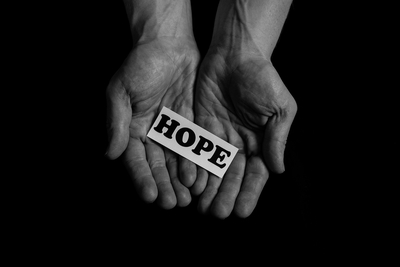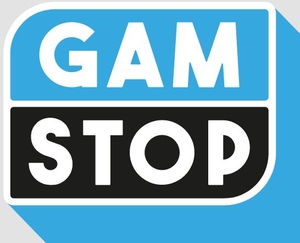 Playing bingo online can be one of the best ways to pass time and entertain yourself. And in addition, there’s always the chance that you’ll leave the site with more money than you originally put in. However, bingo is also considered to be a form of gambling, and there comes a point when players can potentially become addicted to it.
Playing bingo online can be one of the best ways to pass time and entertain yourself. And in addition, there’s always the chance that you’ll leave the site with more money than you originally put in. However, bingo is also considered to be a form of gambling, and there comes a point when players can potentially become addicted to it.
It’s like anything else that you enjoy; gambling, computer games, coffee, chocolate, even shopping, if a person enjoys bingo to the point of obsession, it can become detrimental to your health and your bank balance.
Nobody wants this, not you or the bingo industry, so if you’re finding yourself becoming addicted to playing bingo, or your playing habits are starting to change for the worse, you need to have somewhere to turn in order to try and help yourself out.
How Do I Know if I’m Addicted?
 It’s a tough question to answer, as everyone’s circumstances are different and the hardiest of addicts will always claim that there’s nothing wrong even if they are spiraling into debt. But if you want to be honest with yourself, why not take a look at your gaming routine?
It’s a tough question to answer, as everyone’s circumstances are different and the hardiest of addicts will always claim that there’s nothing wrong even if they are spiraling into debt. But if you want to be honest with yourself, why not take a look at your gaming routine?
Playing bingo should be enjoyable, and should provide an entertaining way to spend a short amount of time. If it’s getting to the point where you’re playing solely for the purpose of winning money, and on a daily basis for hours and hours at a time, it may be time to seek out some support.
There are a few pointers to try and watch out for when it comes to gaming, and these may seem obvious from an outsider’s point of view, but not so much to you if you’re the player. Its a better decision to only play what you can afford to lose. In the case of bingo, only purchase as many tickets as you think you can afford. If you decide to purchase 10 tickets at £1 each, that’s a outlay of £10. There’s a possibility that you might lose all of the rounds, so if you can’t afford to lose £10, don’t buy that many tickets.
Another good piece of advice is to watch out if you start chasing your losses, as this is a slippery slope. If you lose a couple of games and lose your bankroll, don’t deposit and buy more tickets just to try and make up the loss, because there’s also the possibility that you’ll lose the next couple of rounds too. This becomes a never-ending loop and before long, you could find yourself spending way more money than you first intended.
Here are a few other tips for spotting a potential gambling problem in yourself or someone you care about:
- Preoccupation with finding money to gamble with.
- Feeling irritable or restless when you aren’t able to play.
- Turning to gambling when you want to ignore or forget difficult thoughts or situations.
- Lying to those close to you about how much you gamble.
- Putting gambling before relationships.
- Asking friends/family to bail you out of financial difficulties because of gambling.
The NHS also has a handy checklist and point scoring system here.
The bottom line is, if it affects your everyday life then you need to be able to stop. This, for a lot of people, is easier said than done, which is why there are possibilities of seeking help from elsewhere.
GamStop: Self Exclusion
 If you want to physically disable yourself from being able to play bingo online, you could always go down the self-exclusion route.
If you want to physically disable yourself from being able to play bingo online, you could always go down the self-exclusion route.
You can do this directly via the site you use in most circumstances, but if you play on more than one or are worried you might buckle and sign up somewhere else then you can self-exclude using GamStop.
This organisation will contact all gambling companies registered with them and inform them that you wish to self exclude. All companies will then put your details on their list so that if you try and log in or sign up the site will automatically block you from doing so. This cannot be reversed, so it’s not a decision to take lightly.
How Do I Get Help for Gambling?
![]() As part of the Gambling Act 2005, all legal bingo sites must include relative information for players who believe they’re addicted to their products.
As part of the Gambling Act 2005, all legal bingo sites must include relative information for players who believe they’re addicted to their products.
Help for compulsive gamblers can be found through such support groups as Gamblers Anonymous, who provide over 170 meetings per week to assist with addicted gamers. Self help programs are also available, both online and offline, as well as the possibility of seeing a counselor. Treatment for such cases allows you to not only learn about your own behaviour in relation to online gaming, but also discover how others have suffered with, and beaten the problem successfully.
GamCare is another option. This company offers support, guidance and information for free to anyone who might want it. They also offer face to face counseling or sessions over the phone. Call the National Gambling Helpline if you want to chat to them – 0808 8020 133.
Another option is The Gordon Moody Association who run residential courses to help people with gambling addictions. This is a different service than is offered anywhere else and is quite intensive aimed at those with severe issues, but they also run outreach schemes and online courses for those with less severe problems.
The main thing to take away from this is that the help is out there and it is readily available. These organisations are all set up specifically to help people in this very situation, so they are the experts in how to overcome uncontrollable gambling urges.
